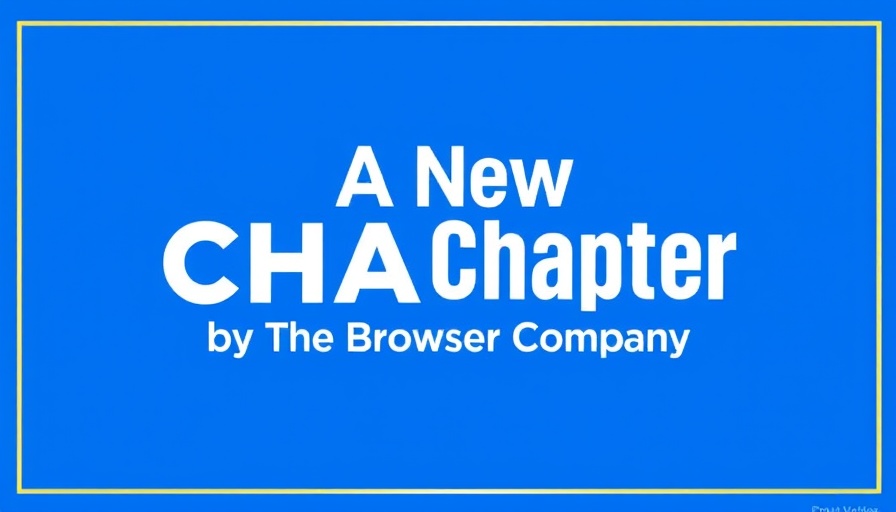
The Browser Company’s Pivot: From Arc to Dia
The Browser Company is at a significant crossroads in its journey to redefine web browsing. Recently, the company's leadership announced plans to potentially sell or open-source the Arc Browser to focus its efforts on Dia, an upcoming AI-powered browser. This pivot demonstrates a strategic shift aimed at addressing user feedback and meeting the evolving needs of today’s internet users.
What Went Wrong with Arc Browser?
Despite its innovative features, Arc Browser faced difficulties with user adoption, an experience that CEO Josh Miller describes as a problem with the "novelty tax." The browser was praised for its unique approaches to interface and functionality, but it was ultimately seen as too complex for the average user. As Miller pointed out, the lack of cohesion in the browser's core features was a barrier to widespread usage. Users felt that learning the new interface yielded little reward, prompting the company to reassess its direction.
The Vision for Dia: An AI-Powered Future
The forthcoming Dia browser symbolizes The Browser Company’s commitment to creating a more intuitive and user-friendly product. Positioned as a mainstream alternative, Dia is currently in alpha testing and aims to cater to users who crave simplicity coupled with powerful AI capabilities. Early users will have a chance to sample Dia, giving the company a chance to gather real-world user insights before a broader rollout.
Open-Sourcing Arc: Pros and Cons
Many fans of Arc have voiced their desire for the browser to become an open-source project. While the company acknowledges this demand, the logistics of open-sourcing Arc remain complicated. The core technology of Arc is intertwined with The Arc Development Kit (ADK), essential for Dia's functionality. Miller stated that without opening ADK, which contains critical company IP, meaningful open-sourcing cannot happen. This reflects a broader industry challenge: balancing community engagement with corporate interests.
The Future of Browser Technology
This transition raises critical questions about the future of web browsers. As companies explore AI integration more deeply, user experience remains paramount. The Browser Company’s situation serves as a case study on the importance of adapting to user feedback and market demands. Furthermore, the tech landscape continues to evolve, making innovation crucial for remaining relevant.
Discussion Points: User Experience vs. Innovation
In the tech community, the shift from innovative yet complex products to tailored, user-friendly designs has sparked discussions about what consumers value. While some users celebrate cutting-edge features, they often overlook how usability impacts overall satisfaction. This raises a key insight: technology firms must balance innovation with practicality to maintain user engagement.
Call to Action: Engage with the Future of Browsers
As The Browser Company progresses toward launching Dia, potential users should stay engaged. Participating in alpha testing offers users a unique opportunity to influence the development of the next generation of browsing technology. Users interested in testing Dia should monitor updates from The Browser Company and provide feedback that can shape its future iterations.
 Add Row
Add Row  Add
Add 



Write A Comment